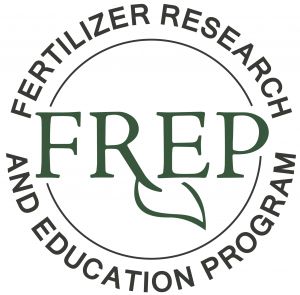
The California Department of Food and Agriculture (CDFA) Fertilizer Research and Education Program (FREP) is announcing $1.4 million in grant funding for six projects to advance California growers’ understanding and implementation of improved nitrogen and irrigation management practices.
This funding is a result of the 2023 cycle of the competitive FREP Grant Program.
Summary of Funded Projects:
Optimizing Potassium Fertilization Management in Almond and Pistachio Orchards
Principal Investigator: Patrick Brown, Ph.D., University of California, Davis
Grant Funding Amount: $290,000
Project Summary: This project will identify the extent and causes of in-field potassium variability and develop an improved methodology for identifying areas of differential potassium demand. Dr. Patrick Brown and his team will also identify optimized potassium fertilization strategies, including site-specific fertilization strategies suited to the fertigated orchard context, and develop extension materials and platforms.
Estimating Mineralization and Nitrogen Utilization from Banded Compost Applications in Drip Irrigated Sweet Potatoes and Processing Tomatoes
Principal Investigator: Daniel Geisseler, Ph.D., University of California, Davis
Grant Funding Amount: $220,943
Project Summary: Dr Geissler and his team will develop nitrogen (N) budgets for sweet potato and processing tomato production in Merced County. They will evaluate the effect of soil texture on N mineralization from poultry manure composts and other organic fertilizers used in these production systems. The project will include laboratory incubation and in-field experiments.
Improving Nitrogen and Potassium Management in Almond Orchards with Hulls and Shells as a Soil Amendment and Off-Ground Harvest
Principal Investigator: Sat Darshan Khalsa, Ph.D., University of California, Davis
Grant Funding Amount: $224,498
Project Summary: This project seeks to understand how soil-applied hulls and shells will influence N, potassium and carbon cycling in almond orchards and their effect on productivity, soil health and N availability. Dr. Khalsa will conduct in-field experiments in Central Valley almond orchards using on-ground and semi-off-ground harvest techniques.
Nitrogen Movement Out of Root-Zones in Central Valley Irrigated Lands: A Multi-Scale Management, Monitoring, Modeling and Outreach Project
Principal Investigator: Isaya Kisekka, Ph.D., University of California, Davis
Grant Funding Amount: $224,061
Project Summary: The project team led by Dr. Kisekka will evaluate and enhance cropping system modeling and management tools such as CV-SWAT and CropManage. These tools are used by growers and regulators to make N and irrigation management decisions. The research seeks to validate CV-SWAT model simulations to ensure solute losses are not under- or over-estimated, to demonstrate the performance benefits of using decision support tools like CropManage and expand their applications, and to study how these changes are reflected in CV-SWAT.
No-Till Planting of Rice to Conserve Water and Ensure the Sustainability of Rice Systems
Principal Investigator: Bruce Linquist, Ph.D., University of California, Davis
Grant Funding Amount: $217,900
Project Summary: No-till practices for rice production have the potential to conserve water and improve N management. Dr. Linquist will develop N fertilization recommendations for no-till rice systems in research conducted at the Rice Experimental Station and participating farms in Yuba and Butte counties.
Facilitating Grower Adoption of Cover Crop Nitrogen Scavenging to Minimize Residual Nitrogen Loss and Comply with the Irrigated Lands Water Quality Protection Program (Ag Order 4.0) on the Central Coast of CA
Principal Investigator: Sacha Lozano, Resource Conservation District of Santa Cruz County
Grant Funding Amount: $224,260
Project Summary: This project will facilitate grower adoption of winter cover cropping on the Central Coast and demonstrate research-backed methods to estimate cover crop biomass, carbon-to-nitrogen (C:N) ratio, and associated N uptake easily and confidently. One project goal is to help growers receive a N credit under Ag Order 4.0 related to cover crop N scavenging to protect groundwater quality.
Since 1990, FREP has funded research on many of California’s important and environmentally sensitive cropping systems. Click here to view the FREP Research & Project Database that aims to make the wealth of information contained in FREP research projects available, understandable and convenient for growers to implement. See the Crop Fertilization Guidelines for tips on how to improve nutrient management, based on information gleaned from research.
Click here to view this original CDFA news release.


